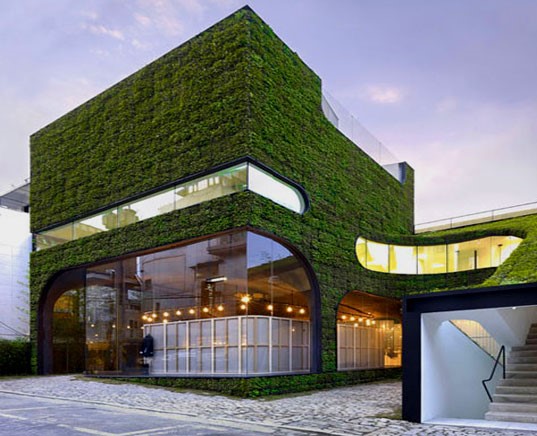REAL ESTATE MINUTE With Cyril Nii Ayitey Tetteh
Greetings my real estate family, I trust you are keeping safe, especially in these times. The other day I walked around my home and spotted an old septic tank or manhole as they can be called, which is no more in use, taking up unnecessary space. We converted the old toilet system to a biofil digester, 6 years and counting and we haven’t had to ‘call in the whole town’ to empty it or deal with any foul ‘aroma’. This inspired this week’s piece as I do always by sharing the good news and specifically why you may need to consider going biofil.
We will get into what the benefits are pretty soon but I think crucially it is important to make a slight distinction between what the biofil digester is not, yes what it isn’t. I have observed that though this biofil system is gaining traction in some homes in Ghana, they are erroneously and generically as a biogas digester. To put this discussion into perspective, it will be apt to note that as the name indicates, biogas digesters are used to anaerobically decompose biodegradable materials such as kitchen waste, human and animal excreta to produce biogas that can actually power stoves in your homes for instance. It is a much more multilayered system than biofil toilet digester. So, now that we know that most of the chambers springing up in our homes are actually biofil toilet digesters, let’s examine the pros and cons to see if you can jump on board too.
WHAT IS IT?
Biofil Toilet Digester is a technology that works by providing an enclosed environment for natural process of aerobic decomposition of feaces including toilet paper and degradable materials. The digester is constructed as a living filter where oxygen inflow into the vault allows the seeds (bacteria, fungi, macro-organisms) within to degrade solids at the top layer aerobically and liquid are filter into the lower layers before being directed out of digester through a pipe into constructed drain field or collected and treated for reuse.
KEY DIFFERENCES
The conventional septic tank is different from the biofil digester in many ways, with key differences summarized below:
Size – Compared to the regular septic tanks which takes up loads of land space, the basic biofil digester covers a small dimensional area (2ft X 4ft and 2ft deep) hence providing you with spare space for other household construction activities.
Reservoir – Unlike conventional septic tanks, large underground reservoirs aren’t needed to store waste
Excavation – For conventional septic tanks, the ground needs to be excavated and depending on soil type, this can present a problem especially for water logged areas. Biofil digesters present no such issues as they can be placed above ground.
Leakage – Conventional septic tanks can overflow and leak leaving a soiled and foul smelling environment as compared to the digester which allows for separated water to be drained out and away from the house.
Evacuation – With septic tanks, you need periodic evacuation, hence access by trucks can be problematic if not sited properly compared to the digestor which provides a bit more utility and can be placed anywhere within the yard.
KEY BENEFITS
Save Land Space – Conventional septic tanks are known to potentially take significant space and in these times where land sizes are maximized, you can easily build an outhouse on that space or use for extra landscaping or gardening.
Cost Savings – With the cost structure of a basic biofil digester ranging from laying of the chamber, transportation, installation materials to labour for construction, you are looking at spending an average GHS2,000 to GHS3,000 as compared about GHS 9,000 to GHS15,000 average for conventional septic tanks, not mention extra fees for evacuation. A biofil digester can be used for more than 10 to 20 years without evacuation thus saving you some cash for other activities.
Environmental friendly – With the digester and piping fixed above ground, the system eliminates ground or surface water and air contamination with bad odour also completely eliminated.
Having acquainted yourself with the system, are you ready to make the switch?
The writer is the Executive director of Yecham Property Consult
& Founder of Ghana Green Building Summit.
Email: [email protected]
LinkedIn: Cyril Nii Ayitey Tetteh
YouTube: Real Estate Minute










